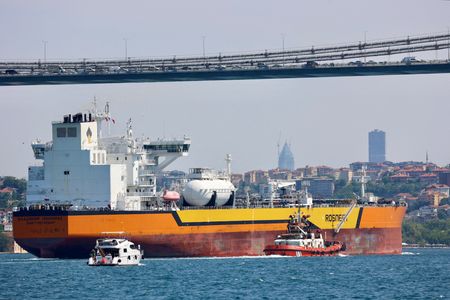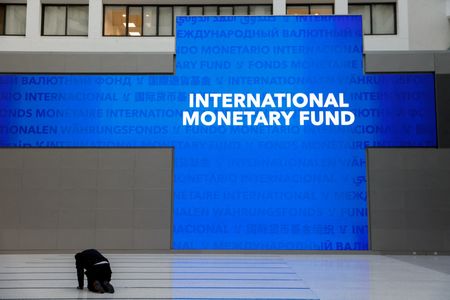MOSCOW (Reuters) -Around 1.4 million barrels per day of Russian oil, or almost a third of the country’s seaborne exporting potential, remain in tankers as unloading slows due to U.S. sanctions against Rosneft and Lukoil, JPMorgan said on Thursday.
The U.S. set a November 21 deadline to wind down all dealings with Rosneft and Lukoil, in the first direct sanctions imposed on Russia by President Donald Trump since the start of his second term.
The sanctions have put a strain on Lukoil’s business, forcing it to declare the sale of foreign assets and disrupting its operations in Iraq, pump stations in Finland and a refinery in Bulgaria.
Trading sources have told Reuters that overall Russian oil exports have been relatively stable so far.
JPMorgan said with a cut-off date of November 21 for receiving oil supplied by the sanctioned companies, unloading cargoes could become significantly more challenging thereafter.
“Russia’s oil exports are entering a new phase of disruption as sanctions targeting Rosneft and Lukoil are set to take effect, prompting its two largest customers — India and China — to sharply reduce their December purchases,” it said.
Traders told Reuters earlier this week that many vessels loading at Russia’s western ports – Primorsk, Ust-Luga and Novorossisk – list Port Said or the Suez Canal as their destination, but later continue on to Asian ports, mainly India and China.
They expect that unsold oil may eventually be shipped to China, with Russian crude being sold in Asia at the deepest discounts in the past year.
(Reporting by Reuters; Editing by Emelia Sithole-Matarise)










